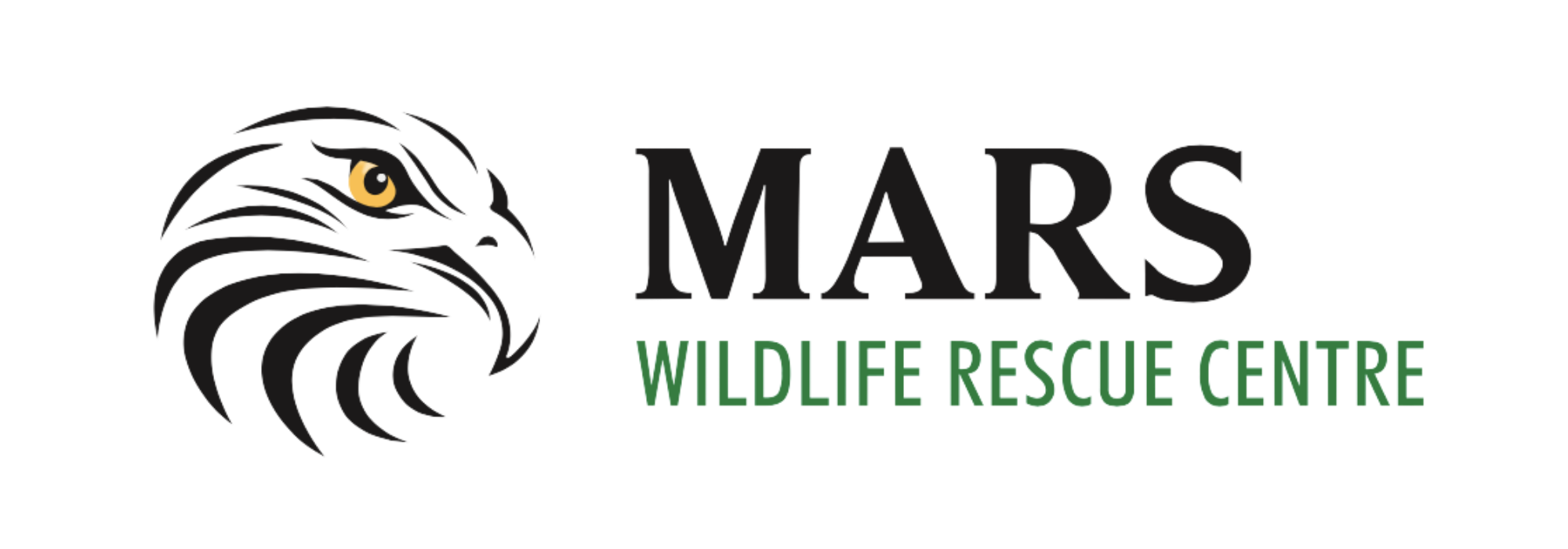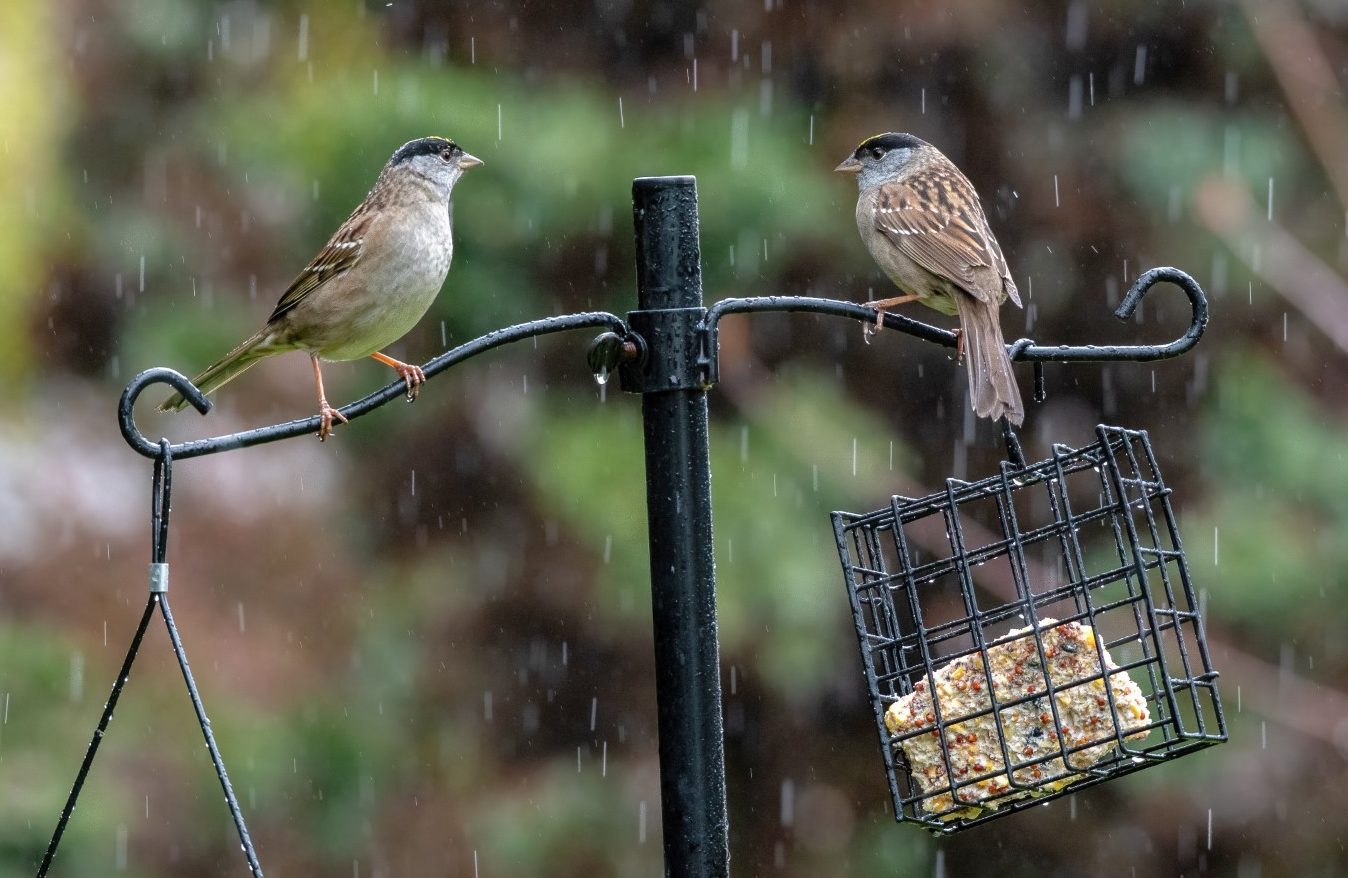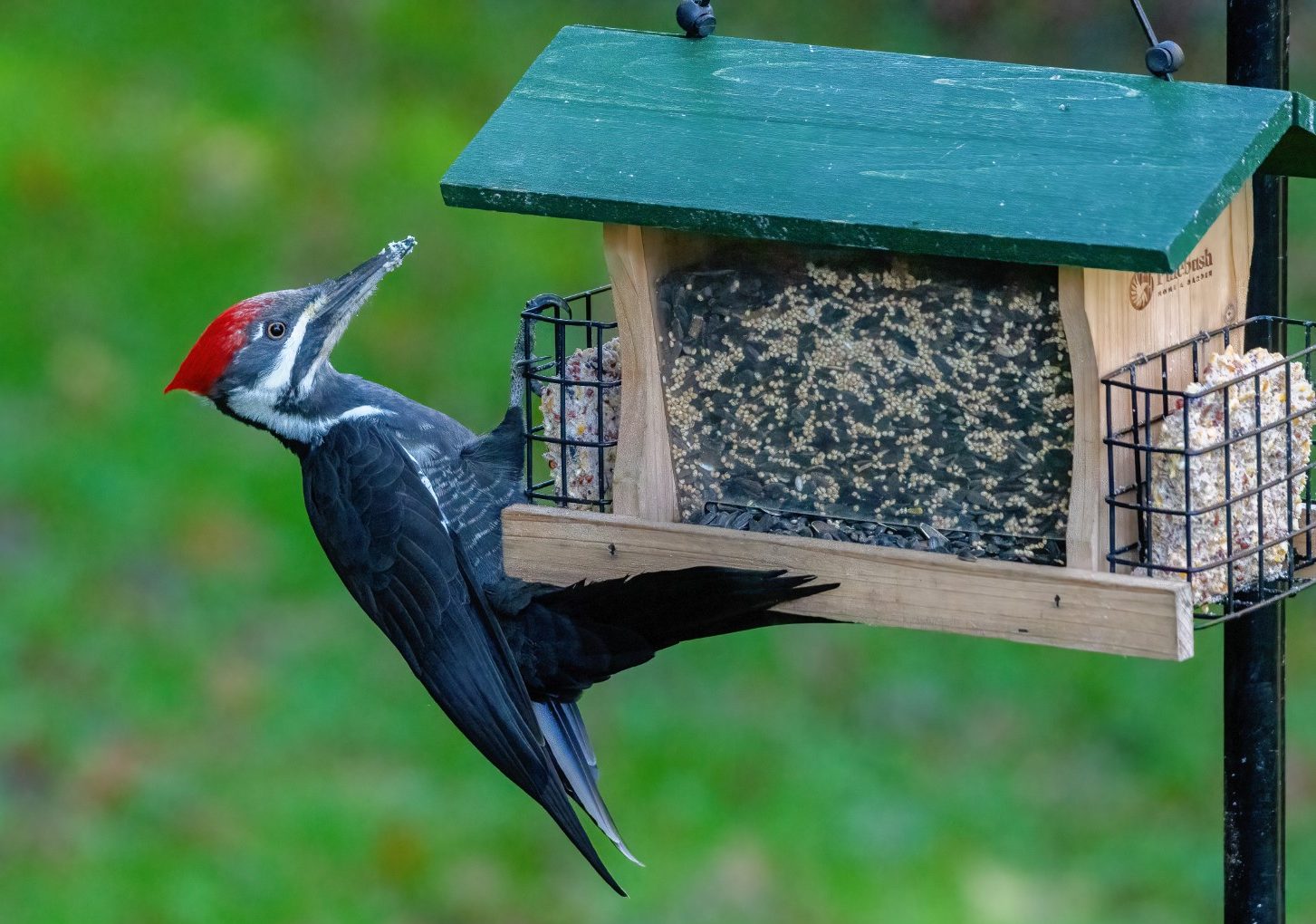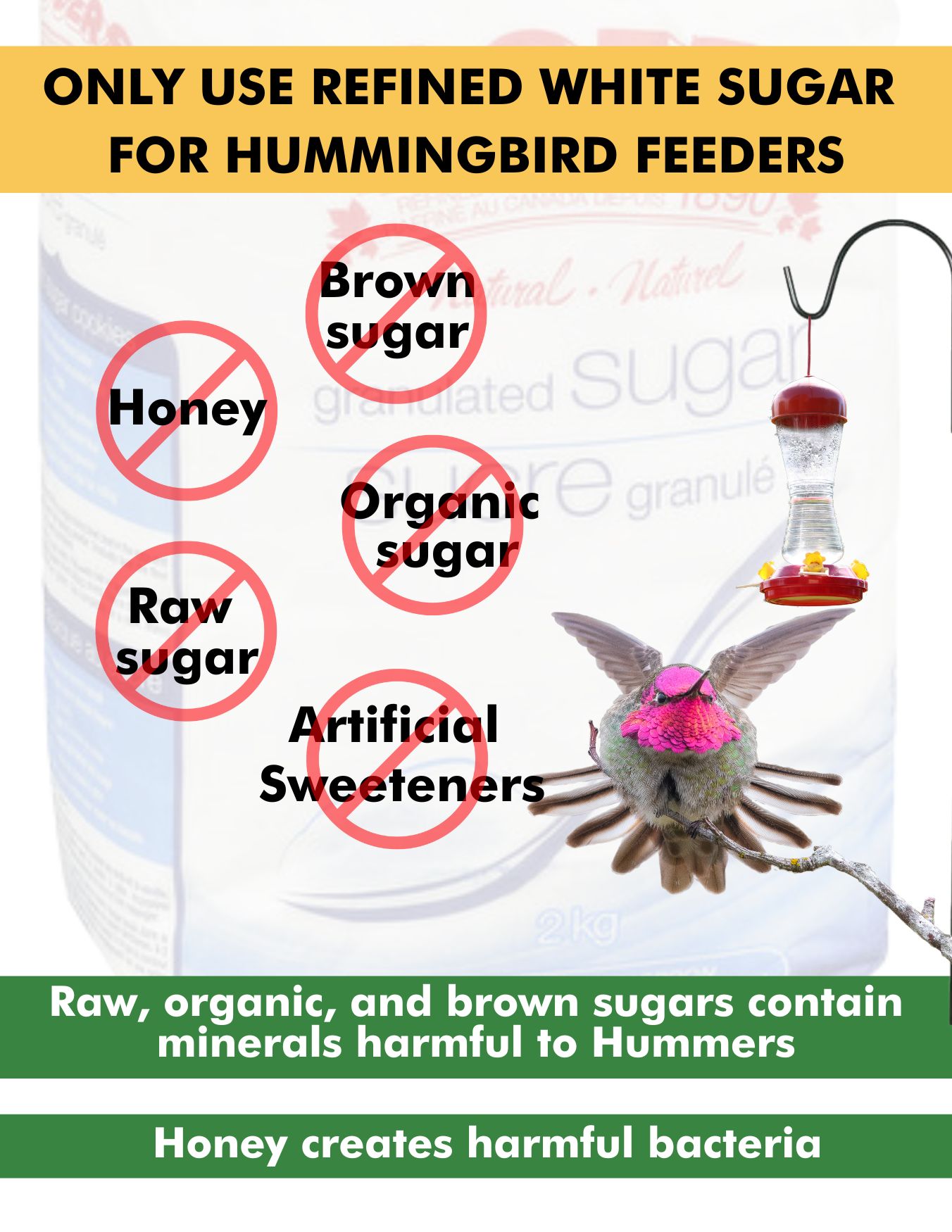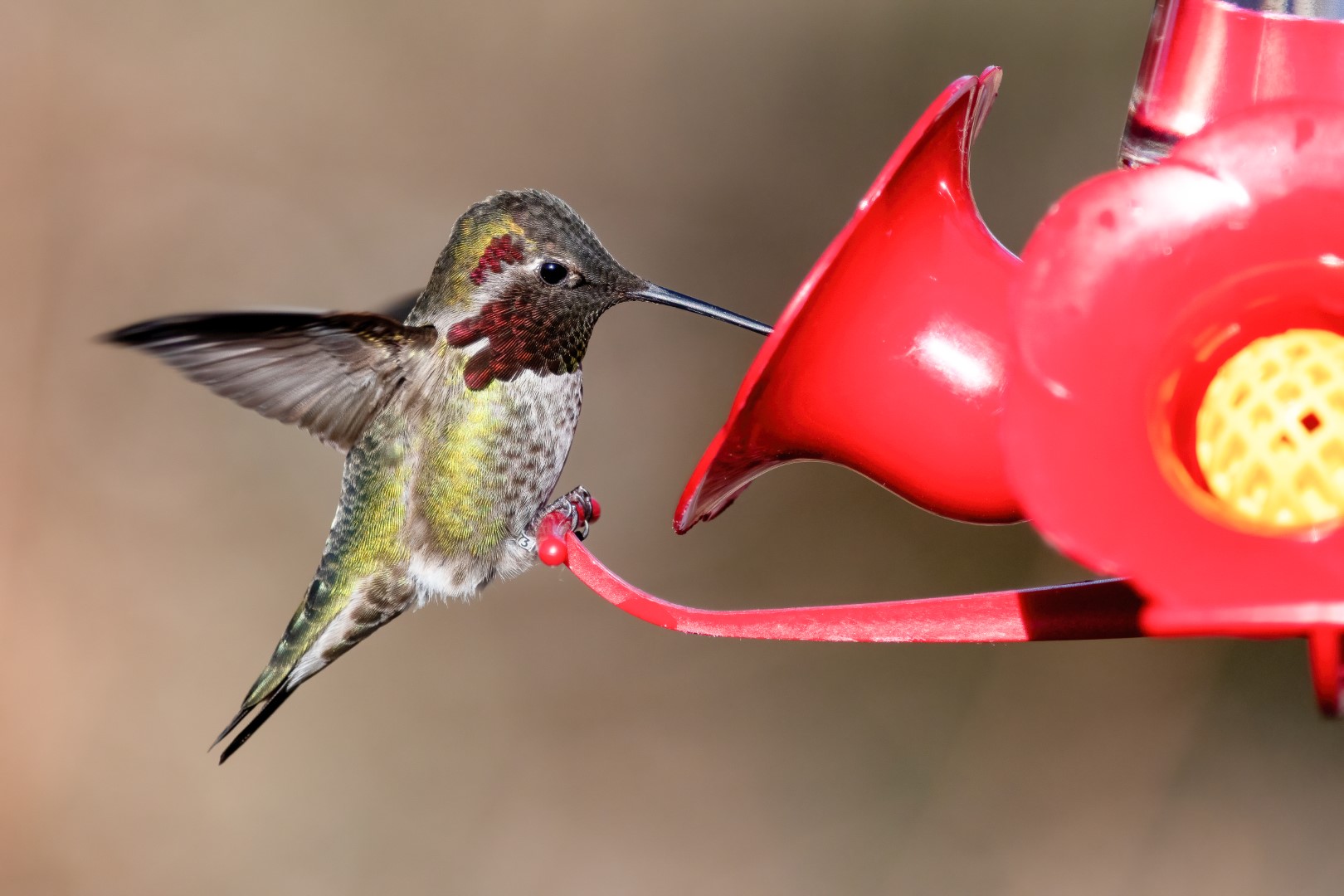Backyard Birdfeeders: What should I do?
We get a lot of questions from the public about putting up bird feeders. The persistence of Highly Pathogenic Avian Influenza (HPAI) in our area–and across the continent–makes answering this question more complicated than usual. Feeders change bird behaviour. Birds can gather in unnatural concentrations at feeders and diseases like salmonella and conjunctivitis (pink eye) can transfer without proper cleaning routines. Songbirds are considered low risk for HPAI but can transmit the disease to domestic poultry and other wild birds.
In brief
If you do decide to feed wild birds, commit to providing the right food in the right place with protection against hazards like predators, windows collision, and disease.
THE DETAILS
Should I put up seed and suet feeders?
Location: if you are near the ocean or waterways where waterfowl, raptors, and corvids (crows, ravens, jays) are found, consider not feeding birds this year as these are the most common places and species affected by HPAI. If you are near chicken or turkey farms, protect your neighbours by not feeding wild birds.
Habitat: Does your yard naturally provide food (berries, seeds, insects on the ground and in the air) and places to roost and escape predation? Feeders should be supplemental, not primary sources of food.
Female Pileated Woodpecker
(James MacKenzie)
Cleanliness: How will your food stay dry in wet weather? Will you wash and disinfect the feeder weekly with a 10% bleach solution? Will you make sure the feeder is fully rinsed and dried before filling? Will you rake/wash under your feeders to prevent fecal-borne disease?
Food Choice: Stick to quality seeds like black sunflower seed or Nyjer seed. Watch for fillers like corn in lower-cost bird food. Don’t offer bread, salted nuts, or use salted fat in suet feeders. Consider separating the different types of food offered to decrease interaction between different species
Consistency: Will you be around to fill and wash the feeder every week, or take it down during an outbreak of disease such as salmonella?
Protection (Cats – Rats – Splats – Traps): If you have free-roaming cats, how will you protect wild birds? How will you prevent rats from eating your suet and seed? How will you help birds avoid your windows? Bird feeders should be placed less than one metre or more than 10 metres away from buildings to minimize the risk of collision. Is there any danger of entanglement around your feeder from netting or decor?
Should I put up hummingbird feeders?
Location: These feeders are a low risk of HPAI transmission and can stay up if well cared for.
Habitat: Hummers eat a lot of insects. Nectar gives energy but insects provide protein. Is your yard free of pesticides and full of insects and spiders?
Nectar: The recipe is 1 part white sugar dissolved in 4 parts water, served in small doses so it doesn’t spoil. No honey, brown sugar, or food dye. Keep extra nectar refrigerated.
Male Anna’s Hummingbird
(James MacKenzie)
Cleanliness: Will you rinse your feeder regularly, scrub and clean with a 10% bleach solution weekly? Will you make sure the feeder is fully rinsed and dried before refilling? The bacteria that grow in the feeder digest the sugar and other pathogens grow over time.
Consistency: Will you be around to fill and wash the feeder? How will you keep it from freezing in a cold snap?
Protection (Cats – Splats – Traps): If you have free-roaming cats, how will you protect hummingbirds? How will you help birds avoid window collisions? Is there any danger of entanglement around your feeder from netting or decor?
We all love birds and enjoy seeing them around our homes. Whether or not we offer food at feeders, we can create conditions for wildlife to feed on a diverse diet of insects, berries, and seeds, have trees and shrubs in which to perch, seek shelter, and nest. Your stewardship can provide the opportunity for you to view birds and at the same time protect them from collisions with windows, cat attack, entanglement in netting, injury from lawnmowers, nest loss from pruning, or disease spread.
We welcome your questions. Consider downloading the free Merlin Bird ID app to identify birds in your backyard and at your feeder. If you find an animal in distress, don’t touch: wait, watch, and call 250 337-2021. We are happy to support you and the wildlife in our community.
